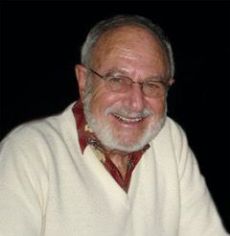David Shear, of Alexandria, Virginia, died on July 5, 2022, at the age of 90. Born in New York City, he grew up in northern New Jersey — still rural at that
time — where he developed a deep love of the environment and became an avid fisherman and outdoorsman.
 After working his way through NYU, David received a Woodrow Wilson National Fellowship to Harvard University, where he earned an MA in history. His keen interest in Africa, particularly the history of colonialism there, led to his role as a researcher at Boston University’s African Studies program.
After working his way through NYU, David received a Woodrow Wilson National Fellowship to Harvard University, where he earned an MA in history. His keen interest in Africa, particularly the history of colonialism there, led to his role as a researcher at Boston University’s African Studies program.
Recruited by the Kennedy administration, he joined the nascent U.S. Agency for International Development (USAID) in 1961. During a distinguished 23-year career, with postings to Nigeria, Tanzania, Côte d’Ivoire, and Senegal, he became known as an innovative leader in development planning and management. He served as director for Africa programs and policy and established the first Regional Economic Development Services Office (REDSO). His leadership of drought relief in the eight African Sahelian states resulted in the creation of the Sahel Development Program, which included the Club Du Sahel, an international consortium of donor countries and development agencies. For this effort, he and AID colleague Don Brown shared the prestigious Rockefeller Public Service Award.
David’s last State Department assignment was as USAID Mission Director in Dakar, Senegal, where he was promoted to career minister, then the highest grade in the U.S. Foreign Service. The U.S. Ambassador to Senegal at the time, Charles W. Bray, described him as “the single most impressive career public servant I have met in 23 years in government … having a rare — almost unique — capacity to combine profound knowledge of his subject matter, and a rigorous and analytical intellect, with purposeful energy and a strong managerial hand.”
Following these years of public service, David joined the International Management and Development Group, where he served as president. He led a program to alleviate widespread unemployment among Senegal’s youth. He also helped create the New Nigeria Foundation, which established community-based health clinics in over 80 villages, treating more than a million people. The foundation continues to serve the Nigerian people today.
In 2008, David worked with the UN Foundation to help establish an overall management plan for the Friends of the Global Fund Africa to fight HIV/AIDS, malaria, and tuberculosis throughout the continent.
As a visiting professor at the (then) Woodrow Wilson School at Princeton University, he taught graduate courses for eight years, emphasizing the practical,
problem-solving applications of development economics. Most of his students chose careers in public service and went on to leadership roles, a legacy which pleased him immensely.
In 2005, David’s love of nature and commitment to sustainable international development converged when he joined the Jane Goodall Institute in the U.S., first as a board member and then as its chair, positions he held for 15 years. In 2012, learning of a planned highway that would have bisected the Serengeti and disrupted the annual animal migration in that rare and essential ecosystem, he worked closely with Goodall to mobilize international support that saved the Serengeti by proposing an acceptable alternate route.
David was an avid (maybe even slightly obsessive) fisherman, casting his line in waters on every continent but Antarctica. His house and garden in the mid-
century modern community of Hollin Hills provided him, his wife, Barbara, and their family with a strong sense of community. He was a founding member of the Friends of Hollin Hills and toward the end of his life, he devoted himself increasingly to the community in which he and Barbara had lived, off and on,
since 1968, with many dogs, cats, and visiting grandchildren.
David is survived by his wife of 67 years, Barbara (whom he met in first grade); his two daughters, Elizabeth (John Bredin) and Jessica; grandchildren Phoebe, Stephen, and David Bredin; brother Morris and sister-in-law Lucille; as well as cousins, nieces, and nephews. David’s life will be celebrated at 3:30pm, October 30, at the Hollin Hall of Mt. Vernon Unitarian Church.

Comments are closed.